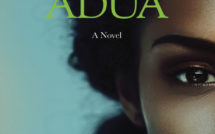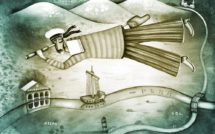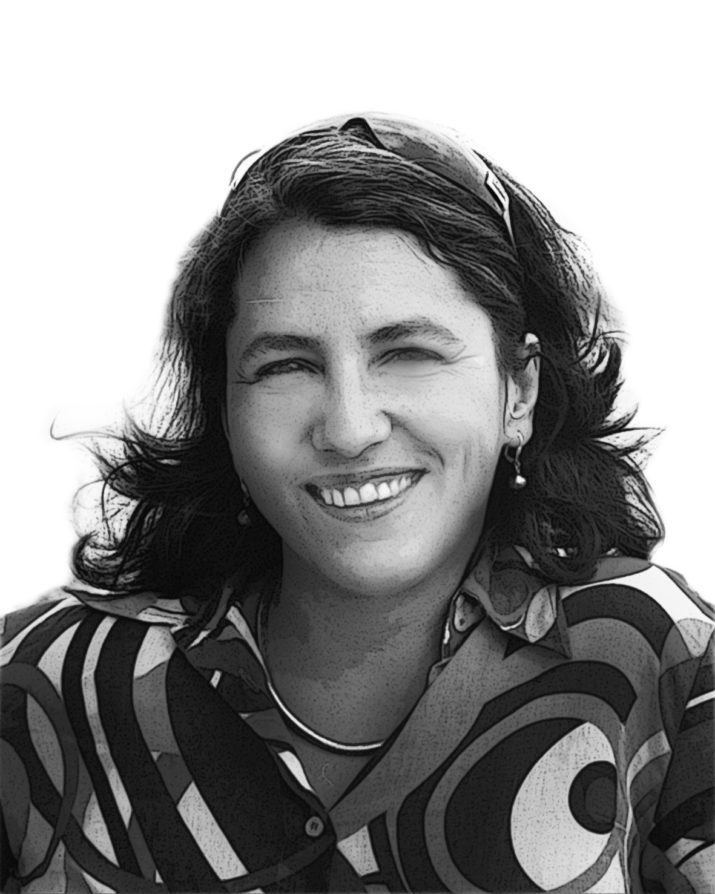
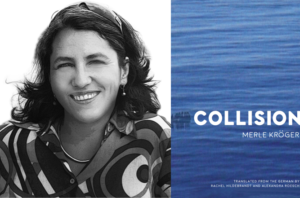
Translated from the German by Rachel Hildebrandt and Alexandra Roesch.
This is part of our special feature on Tourism: People, Places & Mobilities.
Spirit of Europe | Deck 12
Lalita Masarangi and Joseph Quezón
At ang iyong mata’y bilang lumuha
Ng di mo napapasin
Pagsisisi at sa isip mo’t nalaman
Mong ika’y nagkamali
Nagsisisi at sa isip mo’y
Nalaman mong ika’y nagkamali
The Dolphins at Dawn are wrapping up their last song on the stage over the swimming pool. The audience has drifted away. No, wait. There’s the girl in the floral pants suit crouched next to the plastic palm tree—been staring into the mirror app of her iPhone for hours now, her hunched body a concentrated failure. Her girlfriends are gone, giggling behind some door to the inside cabins. And the boy she was seen with earlier on Deck 5? When everything was still glittering. Also gone.
White swathes of steam float across the deck. It wreaks. Someone has puked into the swimming pool, and fibrous chunks float on the surface. Leg of duck in a truffle reduction—the Chef’s daily special. As though in slow motion, the girl straightens up, staggers away, reeling between stacks of deck chairs and disappears into the haze.
Lalita is very, very close to the edge of the pool and hums along as Jo croons in Tagalog. She’s googled the lyrics out of boredom, and also, she can’t stop thinking about this Asian boy with the dreadlocks. He sings with his own voice now, eyes closed. No feigned American accent. No second, third or fourth skin. Lalita sways. Or is it the boat swaying? It’s the damned high heels, twelve centimeters of steel dressed in velvet. Doesn’t matter, she’s off the clock. Lalita Masarangi: Spirit of Europe security team, on duty eight to eight pm, seven days a week, with two half hour breaks a day, plus overtime—three months on, one month off. Fucking nightmare. On day nineteen today. “Fulfill your dream in the western Mediterranean.”
Open your eyes, Jo—look at me!
Jo opens his eyes, and the house between the rice fields north of Manila fades like the after-image of a dream. One last glance at Grandma Bella, who is using her stick to straighten up, her eyes gleaming out of the wrinkled face, transfixing him. Joseph, with his Afro, is proof of her love for the American she met in the forest of Mount Arayat, as they fled the Japanese fascists.
Now there’s Gurkha Girl—that’s what he secretly calls her—dressed to the nines. She looks so cool in her work uniform, black slacks, green beret, guerilla style, but the glittering miniskirt and the heels she’s wearing tonight are cheap. Gurkha Girl turned Nepalese slut. With her eyeshadow too blue, her curls too fake, the cool danger is gone. There’s something else instead, a possibility that turns him on. Her eyes are closed; she’s swaying with the rhythm as Jo turns away and Raymond on bass smiles and nods. Your night, Jo. Jo without an ‘e’.
Break free just once.
The playlist from Gold Cruises’ company headquarters in Miami is two hours of g-rated pop music, strictly UK and US charts. Two hours of the most boring shit in the world, regurgitated three times a day.
“You might look like Jimi Hendrix, but the old biddies want Bob Marley at most, got it?”
No woman, no cry.
Midday in the Maharaja Lounge, afternoons in the Star Lounge, evenings on the promenade deck or poolside, depending on the announcement. Seven days a week; for ten weeks, three weeks off. Today is the eighth day of their third trip. Today Jo gazed into Gurkha Girl’s eyes and whispered into the microphone, “Anak,” feeling the glares of the other band members on his back. The song could cost them their contract, but Jo knows she won’t be able to resist it.
Break free just once.
Be ourselves just once.
The band repeats the chorus of the Filipino megahit a final time. Then silence. Rustling. The wind grows louder.
“Hey.”
Much louder than before.
Gurkha Girl stumbles and smiles.
East of Ghazaouet | Algeria
Karim Yacine
On the edge of the bluff, Karim watches the dark sea. The tingling is back, about two centimeters below his left shoulder blade. Since his bout with shingles, it’s a recurring itch. Bad omen? Oh, come on, old man, it’s just a signal from your body: it wants to be off again, wants to smell rubber and salt water; the rush of blood in your veins, dolphins hunting alongside the boat. That’s what being alive feels like.
Algeria is stagnation, death.
A sharp gust yanks him back to reality. The fire down on the beach blazes much too brightly as the men pack up their things in its glow. They are restless: the Harragas, les brûleurs, “the passport burners.” One of them looks up, pointing to where the boat is camouflaged. They are waiting on his signal, and Karim raises his hand. He is the oldest. Allah, how time flies. This will be his sixth trip—nobody has done this more times.
If the wind dies down in the next ten minutes, Karim decides, they will take off. If not, then they will spend another night pretending to be harmless dudes on a camping trip—young guys wasting their lives because they have no future anyway. Not here at least. They are the children of the Black Decade.
Black as this night.
The wind abates, Karim tugs the pull cord, and the outboard roars to life, brutally loud, echoing back from the craggy mountain walls. Let’s get the hell out of here. He steers the boat so that the mountain is at his back. Like a shadow, they slide from the darkness. Karim knows it—no need to turn around because he feels the mountain there—its mass and magnitude.
He can also sense the invisible mountain rising from the bottom of the sea and partitioning the water halfway between Africa and Europe, just like in the Koran Verse 53, Sura 25, Al-Furqan. According to legend, Jacques Cousteau discovered this underwater watershed and then converted to Islam. In the films, the men on board the Calypso float over a secret universe. Karim has seen all the reruns on Algerian television but World Without Sun is his favorite, perhaps because the title fits his own world so perfectly .
He feels the extinct volcano northeast of Almería before he even activates the GPS. A swell of tapered boulders, pointing like fingers toward the sea, showing him the way to the bay where he will end up, right in the middle of Cabo de Gata National Park. They will sail over three undersea mountains in fourteen hours, if all goes well. Inschallah.
The moon briefly lights upon the faces, before vanishing completely behind a cloud: two distant cousins from Oran at the bow, ones he had not seen since they were children; next to them, the teacher from Algiers; Abdelmjid from the shop in Ghazaouet, where his mother buys her dates; two boys from his neighborhood, whose brothers long ago went to France. Karim had gone to school with them, and damn it—why in the world is he actually still here?
The other five from the village at the end of the bay had been forced on him by the guy who had sold him the rubber rafts. Three boats for the price of two is what he offered, but Karim won’t be part of this new scam for multiple take-offs. Three depart, only one makes it. The unlucky ones drown before the eyes of the coast guard. Algerian roulette.
You’re getting old, Karim Yacine. Thirty-eight this fall. Old and anxious—Zohra was the first to notice it. He Skypes with her every day, assuming the internet is working.
“Don’t be so impatient, Karim. Don’t worry, we’ll find a way.” He fears never again burying his face in her hair before he dies. She’s the one driving him across the sea.
“Promise me you’ll never do it again!” Her face pixelates over Skype, but regardless she is afraid, and he can see that. He promises. He breaks his promise. Not a promising start to a marriage. I promise you, Zohra, this is the last time—the journey and the lies. If not, then there is no future for us after all.
White gulls emerge soundlessly from the darkness and circle the boat. Karim follows them with his eyes, half hypnotized by their ghostlike forms. They fly up again and again, making 180-degree turns and then swooping down toward the frothy water that his motor leaves behind in the wave troughs. There comes another one, its feathers flaring up against the black sea—a white gleam brushed within a few seconds by a finger of light.
“Watch out, coast guard!”
Karim swings the rudder around hard, as shots ring out across the water. “Don’t be afraid! They’re just warning shots!” He calls out to his people. The cousin at the bow suddenly disappears, plunging into the darkness. Panic.
“Brother! Where are you?”
The spotlight sends a beam of light into the darkness, flickering as it searches across the sky.
“We’ve got to get away from here!”
“No!” Despair echoing through the night.
The roar of a motor, fingers of light. They are very close.
“Up there!” Abdelmjid’s face is right next to his own. Karim leans to the left, looking past Abdelmjid. A wall. Their escape is located behind a bank of fog, so he steers blindly toward it. And then they are already plunging into it, the howling of the wind dying a swift death as the edge of the fog turns into a three-dimensional field of whitish light spreading outward, yearning for eternity, lapping at the edges of their small boat.
Karim kills the motor. Nobody says a word. All are thinking the same thing: If he’s lucky, they’ll pull him out of the water in time. If not…
The other cousin has buried his face in his hands, grieving silently until the fog swallows him.
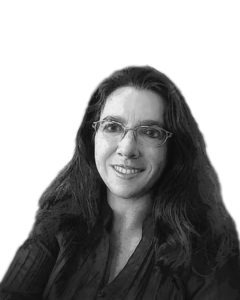
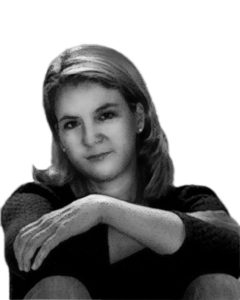
Merle Kröger is co-author and producer of the award-winning cinema documentaries Day of the Sparrow (2010) and Revision (2012). Kröger has published several novels and was awarded the German Crime Novel Award 2013. She will be releasing a documentary film in Germany based on the events that served as the inspiration for Collision, a bestseller in Germany..
Rachel Hildebrandt has published both fiction and nonfiction works in translation, including Grace: A Biography by Thilo Wydra and Staying Human by Katharina Stegelmann (both from Skyhorse).
Alexandra Roesch is a bilingual translator based in Frankfurt am Main. She grew up in England, studied Business and Modern Languages in London and initially worked in the Banking Industry before moving to Germany in 1997. She recently completed a M.A. in Translation at the University of Bristol, including extensive studies of Alfred Döblin, Günter Grass and Ralf Rothmann. She translates extracts and short stories for major German and Swiss publishers.
This excerpt from Collision is published by permission of Unnamed Press. Copyright © 2017 Merle Kröger. Translation copyright © Rachel Hildebrandt and Alexandra Roesch.
Photo: Merle Kröger. private
Photo: Rachel Hildebrandt, private
Photo: Alexandra Roesch, private
Published on September 6, 2017.

